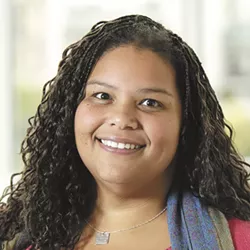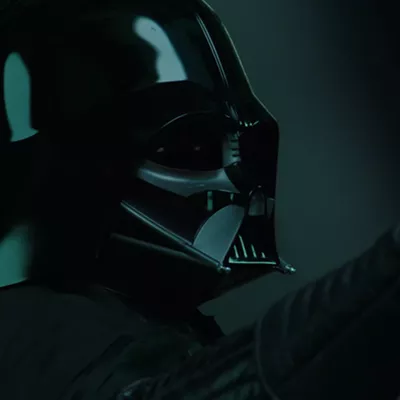I've always been a sucker for epic battles of "good and evil," where questions of life as we know it seem to precariously hang in the balance. Yes, fretting over whether the light will win out over the darkness is definitely one of my signature moves. Needless to say, I was in ultra-nerd-fan-girl mode over The Last Jedi. While I know this is tad bit controversial, I'm going on record to say this was my favorite Star Wars yet. I've been waiting quite a while for this type of episode.
Something that has always bothered me about the saga was the rather simplistic duality portrayed between "good" and "evil," as if we can draw such bright and decisive lines (that literally play out in black and white) with respect to the Rebels and the First Order. And while I'm not entirely sure that I was ready for many of my illusions to be shattered, I was certainly ready for something more real.
I have more questions than answers (Spoilers ahead). Did Luke's actions lead Ben Solo further along the path to darkness? Suddenly, I was questioning my hero. Was Finn naive to think that the Rebels weren't also purchasing arms illegally? Suddenly, I was questioning my judgment. Was Rae's hope in her ability to reach Ben Solo misguided? Suddenly, I was questioning my optimism. The movie felt gritty and layered, it felt messy and uncertain; everyone operating from their own conceptions of reality brushing up against one another's perceptions. That sure felt a lot more like life to me. People are complex, and truth... well, it lies somewhere in the middle.
Let's be honest, the case of what goes into making heroes and villains is never all that clear. If Star Wars is art imitating life, then this portrayal could force us to ask some difficult questions: What are the stories we tell about others and ourselves? Have we perhaps been a bit too basic in our assessments? Is truth purely subjective? Are we too fixed in our realities? In our labels? In aligning with those whom we see as "good" and in rejecting the beliefs of those we deem "evil?"
In reflecting, I look back and cringe over the many times when I have been "evil:" petty, dismissive, judgmental, obsessive, manipulative, vindictive or haughty, but I know that I must make peace, internalizing those times when I have been "good:" giving, nurturing, patient, forgiving, warm, gracious or loving. My life is better when I have a more representative picture of the whole — when I'm able to acknowledge and accept both truths. I am certainly not the worst thing that I have ever done nor should I rest on the assumption that I will solely be defined by the best.
We are simply the sum of all our parts, a composition of both light and dark.
And yes, at the end of the day, I will most likely always come down in support of the Resistance assuming they continue to hold true to the values that I ascribe, but I must also recognize my own capacity for holding some darkness. In fact, while it was a really close call between Rose's ("saving what we love") and Kylo's words, ultimately it was his lines and his wisdom that resonated the most deeply within me: "Let the past die, kill it if you have to, it's the only way to become who you were meant to be." ♦
Inga N. Laurent is an associate professor and director of the Externship Program at Gonzaga University's School of Law. She returned to the faculty this fall after spending nine months researching restorative justice in Jamaica as a Fulbright scholar.






















